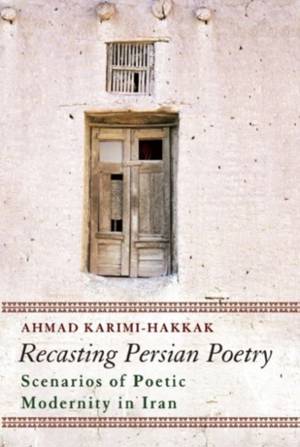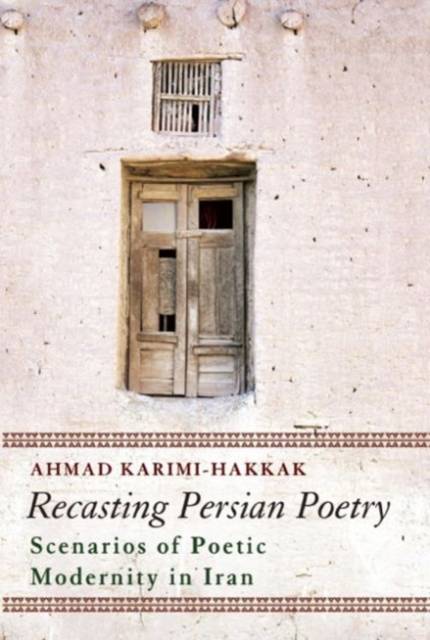
Bedankt voor het vertrouwen het afgelopen jaar! Om jou te bedanken bieden we GRATIS verzending (in België) aan op alles gedurende de hele maand januari.
- Afhalen na 1 uur in een winkel met voorraad
- In januari gratis thuislevering in België
- Ruim aanbod met 7 miljoen producten
Bedankt voor het vertrouwen het afgelopen jaar! Om jou te bedanken bieden we GRATIS verzending (in België) aan op alles gedurende de hele maand januari.
- Afhalen na 1 uur in een winkel met voorraad
- In januari gratis thuislevering in België
- Ruim aanbod met 7 miljoen producten
Zoeken
Recasting Persian Poetry
Scenarios of Poetic Modernity in Iran
Ahmad Karimi-Hakkak
Paperback | Engels
€ 40,95
+ 81 punten
Omschrijving
Using a semiotic model of poetic change, Recasting Persian Poetry presents a critical history of the evolution of Persian poetry in modern Iran. Iran's contact with Europe in the nineteenth century produced largely imaginary ideas about European culture and literature. In a series of textual manoeuvres and cultural contestations, successive generations of Iranian intellectuals sought to recast the classical tradition in a mold at once modern and relevant to their concerns. In particular, Karimi proposes a revision of the view that sets the Modernist poet Nima Yushij as the single-handed inventor of 'New Poetry'. This view, he argues, has resulted in an exaggerated sense of the aesthetic gulf between the modernist poetry of Iran and classical Persian poetry. Through a number of close readings of works by Nima's predecessors, Karimi makes visible a century-old Persian poetic tradition with Nima as its culmination.
Specificaties
Betrokkenen
- Auteur(s):
- Uitgeverij:
Inhoud
- Aantal bladzijden:
- 354
- Taal:
- Engels
Eigenschappen
- Productcode (EAN):
- 9781780742496
- Verschijningsdatum:
- 1/11/2012
- Uitvoering:
- Paperback
- Formaat:
- Trade paperback (VS)
- Afmetingen:
- 155 mm x 231 mm
- Gewicht:
- 521 g

Alleen bij Standaard Boekhandel
+ 81 punten op je klantenkaart van Standaard Boekhandel
Beoordelingen
We publiceren alleen reviews die voldoen aan de voorwaarden voor reviews. Bekijk onze voorwaarden voor reviews.









